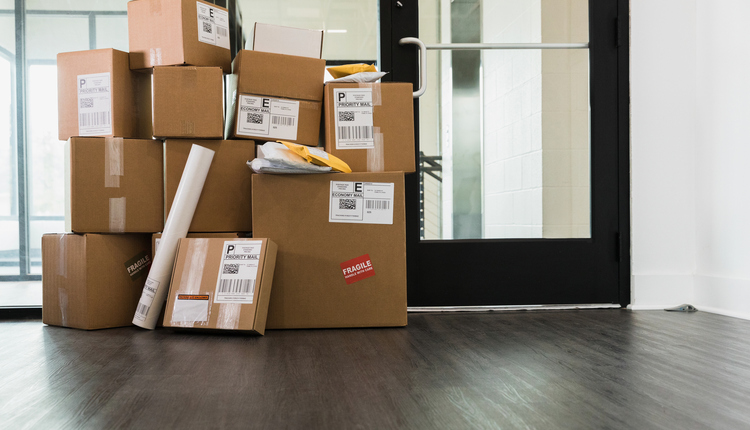The future of consolidation is changing in light of recent industry events. The playing field is dwindling as regional players are finding independence challenging; PFI and Momentum Logistics are two such players absorbed into larger consolidators, decreasing the opportunity for regional shipper/carrier interaction. UPS and FedEx are searching for ways to increase their involvement with the U.S. Postal Service through Parcel Select.
At the same time, the Postal Service is moving towards increased workshare relationships in an effort to continue to drive costs down. The Presidential Commission on the Postal Service recommends continuing the growth of workshare relationships while the Postal Service is motivated to facilitate more package volume through destination delivery or zone skip via the local post office or DDU, as reflected in the strong growth rates and tiered rate structure of Parcel Post. It is our belief that the Postal Service will also look more carefully at other existing mail products for better cost quantification in order to facilitate additional workshare opportunities.
To summarize: Consolidators are consolidating, UPS and FedEx want to compete in their space, and the Postal Service wants to grow Parcel Select. Who benefits from this activity? The shipper does. Todays shipper must stay in touch with the economic environment of transportation and understand its position in the marketplace. Factors in addition to sheer volume that help form this position are location, product type and service requirements. Knowing who competes for your business is equally important. The economics of consolidation are dictated by minimum daily package counts and limited pickup locations that might impact your position in the food chain.
The term consolidator in itself should provide caution for todays parcel shipper who expects the best in service, quality and value proposition. To consolidate means to build package volume in order to make more cost-effective linehaul movements and deliveries. There are also other products requiring delivery that might affect on-time delivery performance; for instance, does print move parcel or does parcel move print?
In todays transportation environment, the lines of distinction between Postal Service parcel workshare partners such as parcel consolidators, DDU delivery expeditors, UPS and FedEx can be blurred. There should be no surprises: Operations are simple as packages move from shipper to the Postal Service at the closest possible entry point to the consignee, and rate structures should be reflective of this.
Better integration means better understanding of your packages lifecycle from distribution center to consignee delivery. Note any breakdown of custodial control; for instance, determine if your consolidator outsources delivery to a courier, LTL carrier, another consolidator or parcel expeditor. Utilizing one integrated provider for your delivery and returns needs creates bundling or leveraged rate opportunities.
Chances are your delivery service provider, whether a parcel consolidator or a DDU delivery expeditor, is a significant partner of the Postal Service. In some ways, this symbiotic relationship requires clear lines of communication and preparation for the future of the Postal Service through experiments and rate cases. Parcel consolidators and expeditors should rarely be taken by surprise when Postal Service policy and postage changes are announced. Because the Postal Service is a vital component of their existence, these service providers are well informed as should be their customers.
The future of consolidation could be a bright one as long as parcel consolidators are able to meet the needs of todays shippers. Improved transit times, reduction of delivery tails, increased flexibility, returns all are shipper expectations. To prepare for the future, shippers must recognize their positions in the market, better integrate with their carriers and ask the right questions to force their delivery partners to examine their forward and reverse transportation processes from different angles in hopes to provide the most effective strategy.
For more information, visit www.shipapx.com
DDU Express
By Norman Kravitz, President and CEO, DDU Express, Inc.
Parcel shippers have never had more choices. I compare the future of package shippers to the mortgage market of today. Everyone wants your business, and most banks and brokers are willing to do whatever they can to earn it. Shippers today have an opportunity to become more diversified. Shippers need to step outside the norm and give package delivery a second look and reap the rewards of big savings.
When shipping with a major delivery company, parcel shippers are faced with countless surcharges and fees that can affect almost 50% of their package deliveries. With the explosion of the Internet, no one can argue that more packages are being delivered directly to the consumers, better known to package shippers as the residential customers. UPS and FedEx classify these deliveries as surcharge deliveries $1.40 more than a commercial delivery for the same size and weight package. In addition to the residential surcharge, if you are lucky enough or unlucky enough to ship to one of the 26,000 plus delivery ZIPs that are considered rural, you get to pay an additional $1.75 for a residential delivery. New for 2004, you will pay $1 more for a commercial delivery going to a rural ZIP code. Considering only 50,000 total ZIPs are used in the US, what financial impact do the 26,000 rural ZIPs mean to your company?
With the development of the consolidator industry, package shippers now have options that they have never before had. · Consolidators, like DDU Express, have taken big strides over the past few years with automation, customer service, security, technology, tracking capabilities and transportation. Package shippers have been forced in past years to build their shipping departments around the procedures of the major package delivery companies like UPS and FedEx. These two are great delivery companies, but they have forced shippers to do business their way. Today, the shippers have to say thanks to the U.S. Postal Service and the development of the consolidator industry.
Over the past few years, parcel consolidators have moved to the forefront of package delivery at an economical price. No longer will shippers be forced to pay high prices unless they choose to. Thanks to the U.S. Postal Service, consolidators can minimize surcharges due to a worksharing program known as Parcel Select. Parcel Select users do not have to consider if a package is commercial or residential or even if it is going to be delivered to a rural ZIP Code. These packages can all be delivered for the same low price.
With consolidators involved in your shipping, everything is now negotiable. Surcharges from the major delivery companies for odd shapes, non-machinable, balloon or even over-sized packages are now price negotiable. Pick-ups and delivery times to consolidator facilities are available based on customer needs. Package shippers can test within specific regions of the US if they are not familiar with a consolidators services and ease into a possible transition from the major shippers. Consolidators offer greater flexibility to shippers, and you can use more than one to receive nationwide delivery while getting the largest discounts.
For more information, please visit www.dduexpress.com.
Parcel Direct
By Dave Riebe, President of Parcel Direct
The risk of mergers and acquisitions looms large in the parcel consolidation industry with the entrance of big-name carriers. Small regional carriers may join forces, large carriers may acquire the small and still others could be put out of business entirely. Whatever the case, this industry will have a materially different landscape in the next nine to 12 months, with the fallout being a dramatic shift in the number of players.
One way in which residential shippers can prepare for the future in the consolidation industry is to align themselves with carriers that fit their individual needs and provide the most value. The best carriers take advantage of the U.S. Postal Service to enter parcels deep into the postal system for consistent six-day-per-week delivery. And while pricing levels are always a consideration, choosing a carrier should go beyond just price.
Among the factors residential shippers should consider when choosing a carrier:
Networks. First and foremost, does the carrier support a national, fully integrated automated network? Consis-tency in operating platform and systems between facilities allows for seamless movement of data and information and also provides for accurate billing and tracking infor-mation not to mention a very high degree of time in transit consistency.
Reach. Does the carriers network have a national reach? For the shipper, there is an advantage in streamlining operations and administration with a single carrier that has a national reach.
Custodial Control. Does the carrier outsource sorting and distribution? Parallel to the importance of national reach is the importance of single carrier responsibility. It is to the shippers advantage to seek a carrier that does not interline freight to a regional carrier. When a third- or fourth-party com-pany is used to sort and distribute parcels to the Postal Service, critical control of a parcel can be lost not only physically but also from a tracking, billing and claims perspective.
Service. Does the carrier have stability and a proven track record at providing great service? Service can be measured by many things: consistency of delivery, personalized attention, full reporting capabilities and quality custodial control of parcels and their associated data.
A stellar performer in last-mile delivery, the Postal Service represents the future in residential shipping. When partnering with the Postal Service, national reach consolidators with fully integrated national networks can meet the needs of business-to-consumer shippers and represent a viable long-term alternative to other carriers like UPS or FedEx.
For more information, visit www.parceldirect.com.
SmartMail Services
By Don Berry, Executive Vice President,
Sales and Marketing for SmartMail Services
For parcel shippers who integrate technology into their delivery methodologies, the future promises efficiency gains, cost reductions and increased control over shipments. Differentiating service providers and negotiating rates will become more complicated as competing delivery service providers continue to enhance their service offerings to adapt to the changing marketplace. Although having more options ultimately benefits shippers, selecting the right vendor will increasingly become more difficult.
The U.S. Postal Service is scheduled to augment its Parcel Select service with a Web-based delivery-reporting tool called Parcel Delivery Service Measurement Effectiveness. This tool will allow consolidators to track deliveries by customer name, shipment date range and postal facility. Currently, delivery-tracking information is available on a piece-by-piece basis. Analyzing delivery performance requires both time as well as resources to gather tracking information and develop reporting tools to analyze the information. Once the analysis is complete, consolidators, such as SmartMail Services, work with the Postal Service to identify any poor performance areas and improve them. The release of Web-based reporting will give consolidators instant access to delivery performance reporting, seamlessly integrating them into the Postal Service mail stream, enhancing the accountability of the Postal Service and ultimately improving both delivery times and control over deliveries.
Its no secret that the Postal Service reaches 140 million homes daily and offers rural and Saturday delivery at no extra cost. The assessorial fees that shippers incur when using large express carriers for residential deliveries create a compelling argument towards expanding a shippers selection of delivery service providers. With the added expense of residential delivery, even large overnight express carriers are now offering deferred delivery services to their customers that leverage the Postal Service for final mile delivery. The increased interest of large overnight express carriers to use the Postal Service for residential delivery further validates the marketplace and creates an added benefit for shippers by giving them more service options at a better price.
Taking advantage of Postal Service programs like Parcel Select may be new to some overnight express carriers, but a variety of consolidators in the marketplace have been participating in the Postal Service workshare program for years. Companies like SmartMail built their businesses around the strength and efficiencies of the Postal Service, taking advantage of its workshare partnership program to deliver flats and parcels nationwide that range in weight from two ounces to 70 pounds. By processing the mail on the front-end through a combination of its nationwide delivery network and ground and air transportation lanes, SmartMail meets expedited and deferred delivery commitments nationwide. Its value-added services, such as address verification, ZIP code correction and selective routing, keep the mail moving towards its destination without delays. But SmartMail is just one example of the variety of consolidators in the marketplace. Shippers can choose from a number of national and regional providers to deliver products to customers in a timely fashion while controlling costs.
When preparing for the future of consolidation, a shipper will need to have the technologies in place to support consolidator selection by delivery time frames, product, service strengths and rates. Shippers will need to hold consolidators accountable for deliveries by reconciling their shipments. There are a variety of multi-carrier manifest shipping systems available that help parcel shippers rate shop and create carrier manifests. These systems link directly to the shippers accounting software to obtain ship-to addresses, terms and order amounts. Manifest systems today allow shippers to build shipping rules that support promotional programs and customer requirements. They also allow shippers to rate shop for the most cost effective delivery service provider. The future will unveil another level of sophistication in the manifest system that allows shippers to shop a variety of consolidators and distinguish them by their service strengths and product types, in addition to their service fees. To adequately prepare for the future, shippers need to begin to deploy the technologies available and build up their internal IT resources to keep pace with the technological advances on the horizon.
For more information on SmartMail Services, call 800-650-8826 or visit www.smartmail.com.





